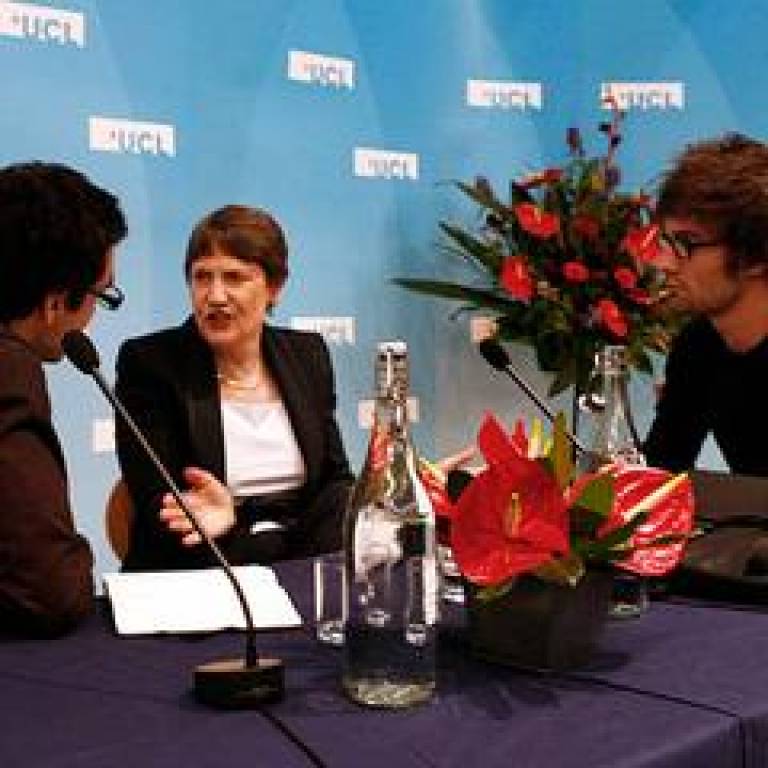2010 Lancet Lecture review: Helen Clark
7 December 2010
Shivani Singh, a doctoral candidate at the UCL Centre for International Health and Development, reviews Helen Clark's lecture 'Overcoming Public Health Challenges: Meeting the Millennium Development Goals'.

"This year the UCL Lancet Lecture was given by Ms Helen Clark, the current Administrator of the United Nations Development Programme and the first woman to hold that post within the UN. She was previously the Prime Minister of New Zealand, from 1999-2008.
Ms Clark expressed her longstanding interest in health issues. She also explained that in her role as health minister in the 1980s, she was particularly inspired by the Alma Ata Declaration, which promoted the need for universal primary care. A shared concern for both developed and developing countries, this approach is one which continues to be espoused by leading institutions.
Ms Clark clearly sees health as being more than just the care received in medical facilities, explaining in her lecture that it must be understood in a wider context. She said: 'Health is not something which comes from doctors' rooms, or hospital wards, or pharmacists' shelves. Health is a state of overall wellbeing... being able to live in a place which is at peace; a state where you have enough food and where you have access to education and services.'
In giving a broader definition of health, Ms Clark acknowledged the influence that political and social factors have upon the access to care, and stressed the need for female empowerment. Ms Clark talked about some of the successes of global health initiatives over the years, with Sub-Saharan Africa as an example of extended life expectancies and improved access to education. However, she acknowledged one of the biggest impediments to health is inequality and the need to target this through political action.
'It's clear that high headline levels of economic growth do not necessarily at all translate into higher human development. To take those higher levels of growth and translate them into the investments which will go into schooling, into health services, into better nutrition into more exclusive growth - that requires deliberate public policy decisions.'
She also cited environmental unsustainability to be a growing challenge and one which will only continue to become a threat to global health in the years to come.
Talking about the UN's Millennium Development Goals, Ms Clark explained: 'Now is the time to start applying this knowledge more widely to accelerate progress across the Millennium Development Goals. What we know about these goals is if you press hard on one, you will have an effect on another. For example: if we can reduce child mortality and improve maternal health over time, that helps us reduce poverty and empower women - which in turn further reduces mortality rates and curbs the spread of disease. You can create a number of virtuous cycles.'
In closing, Ms Clark stressed the need for stronger partnerships between state and non-state actors in the health and development sector, which she believes will result in greater health and empowerment for those who are most in need."
Image: Isaac Ghinai (left) and Martin Everson in discussion
with Helen Clark, courtesy of Teddy Hla, UCLU PhotoSoc
 Close
Close

